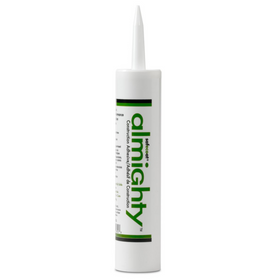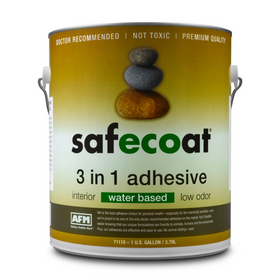
Our Top 5 Sustainable Prefabs in 2019
Last Updated: Mar 10, 2025Rise readers (and writers) love them. Design magazines drool over them. Celebrities, especially those into environmental activism, are intrigued. The technology to create them continues to innovate faster, simpler solutions to fabrication. We're talking, of course, about prefabs, or prefabricated homes. More specifically, sustainable prefabs, in styles from cottagey and colonial to boxy and modern, and from tiny to significant square footage.
Table of Contents
- 1. Cocoon9: Micro Home
- 2. Deltec: Renew Collection
- 3. Stillwater Dwellings
- 4. P.A.T.H. by Starck with Riko
- 5. Alchemy Architects: weeHouse
Our prefab faves have a lot in common. First, they can cost less than a traditionally built home (depending on customization). Second, they save time: typically, a prefab takes 50 percent or less time to construct than a traditional home, which translates into financial savings on labor. Third, components and panels are fabricated in a climate-controlled factory, delivered to the site, and assembled on-site—limiting construction waste. And finally, sustainable strategies, from solar arrays to low-VOC finishes, are incorporated. Some are even customizable to net-zero, net-positive, or off-grid. Let's take a look.
1. Cocoon9: Micro Home
New York-based Cocoon9, a designer and manufacturer of prefab dwellings, has created a collection of micro homes. The company describes them as "plug-and-play houses with the sophisticated features of a custom home or luxe resort." Cocoon9 has introduced three-floor plans: The Cocoon Cabin (a one-bedroom prefab); and the Cocoon Studio and Cocoon Lite 20, which both have open-plan layouts.

Think Swiss knife with Cocoon9's prefabs: The furniture, appliances, and storage areas open up and fold away into walls, floors, and ceilings to maximize space. As for sustainability, the models incorporate such sustainable materials as F.S.C. certified bamboo and insulated glass with thermally broken aluminum frames. (The term "thermally broken" refers to the window's construction: The aluminum frame window is fabricated with a barrier in between the inside and outside window frames, which prevents the thermal energy loss.) All of the models are also equipped to accommodate solar panels and roof gardens.
2. Deltec: Renew Collection
Deltec has been designing and constructing prefabs across the U.S. since the late 1960s. Currently, the Asheville, NC, company is being recognized for its energy-efficient prefab models. It's also a certified B Corporation. Deltec’s new Renew Collection is getting a lot of buzz. The models are prefabricated, panelized homes with a passive solar layout that can be net-zero ready. Homebuyers receive energy modeling based on the weather in the homeowner's region, and the company will customize the construction based on-site, climate, and homeowner needs. The Renew prefabs are certified as Zero Energy Ready, Indoor airPLUS, and as ENERGY STAR homes.

Other sustainability features include 2x6 exterior walls with advanced insulation; Marvin Integrity windows; a Mitsubishi electric combination ductless and ducted hyper-heat mini-split heat pump; a heat pump water heater; a recirculating hot water system that supplies hot water on demand to the bathrooms without needing to "run the water" until it is hot; interior paint with zero volatile organic compounds; all L.E.D. lighting; water-saving fixtures; and energy-efficient appliances.
3. Stillwater Dwellings
Stillwater Dwellings, based in Seattle, offers large prefab panelized homes in more than 20 models. The LEED-accredited designers can also customize a model to a buyer's specifications. Stillwater prefabs are particularly popular in areas with wildfire, as the company specializes in fire-resistant housing as well with "Fast-Track" plans to get a family back into a home quickly after a fire.

P.A.T.H. utilizes renewable energy sources for heating, cooling, and ventilation. P.A.T.H. homes come renewable-energy ready to install solar panels, heat pumps, wind turbines, rainwater collector systems, and other essential elements of sustainable design. Clients can opt for packages that turn the P.A.T.H. home into a zero-energy or even positive-energy home.
As Starck told Rise, "Building your own house can be extremely risky: we know when it starts, but not necessarily when it ends, or how much it will cost. With P.A.T.H. and thanks to the industrial production of prefabricated components, in six months and for a defined budget, anyone can access a home."
5. Alchemy Architects: weeHouse
In 2003, Geoff Warner, founder of Alchemy Architects in St. Paul, Minnesota, started with a seemingly simple idea: To design a sustainable prefab home that clients could buy in an easy, off-the-shelf way. After the first award-winning weeHouse in Wisconsin was built, things didn't go as planned. "With the weeHouse, we originally thought clients would choose a plan, and we could execute it with a factory partner in about three months," Warner says. "It didn't work that way. The weeHouse modules we showed were just starting points for customized homes."
Camille LeFevre
Camille LeFevre is an architecture and design writer based in the Twin Cities.













